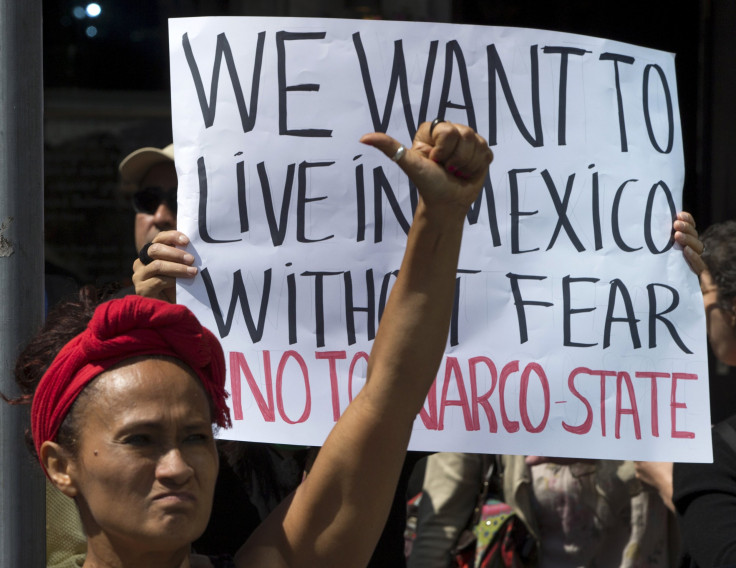Mexico Kidnapping Soaring As Ayotzinapa Protests Continue Over Abducted College Students

Kidnapping incidents in Mexico increased by nearly 30 percent in June, adding to a growing problem that's hard to accurately measure, according to a Wednesday warning from the country's National Citizen Observatory. The civil security organization reported 178 abduction cases last month -- a roughly 28 percent jump from the 138 cases in May, El Economista reported.
The six Mexican states with the most kidnapping cases in June were Tamaulipas, with 32; Guerrero and Tabasco, with 17 each; the Federal District, with 14; and Veracruz, with 13. President Enrique Peña Nieto's administration has seen more than 6,000 kidnappings overall since he took office in 2012, according to the organization.
National Citizen Observatory President Isabel Miranda de Wallace said at a news conference that calculating these totals was difficult because some kidnappings weren't reported and others were handled incorrectly, according to Cronica. Several states have legal loopholes that allow them to not investigate all cases and dole out weaker punishments. For example, some districts classify kidnappings as illegal deprivation of liberty cases, or holding someone against their will. This lesser offense carries a prison sentence of up to seven years, while suspects convicted for kidnapping receive prison sentences between 40 and 80 years, Azteca Noticias reported.
Between 2010 and 2015, about 9,950 cases in seven states were found to be classified as illegal deprivation of liberty incidents. "This figure is alarming because it is just a sample of the thousands of abductions that were reported but hidden from the official figure and typified incorrectly," de Wallace said in Spanish.
The National Citizen Observatory report came about 10 months after 43 Ayotzinapa teaching college students disappeared on their way to protest a speech in Iguala, Guerrero. The students were likely intercepted by police and turned over to a local gang to be killed. The high-profile case set off a wave of protests by Mexican citizens who saw the incident as typical of a corrupt government that didn't care about them.
Parents of 43 of #Ayotzinapa who tried to enter the Infantry Battalion were repressed. Video https://t.co/8urAOldw2j pic.twitter.com/u4rcHEoMWn
— #FreeTenharim (@PersonalEscrito) July 16, 2015Authorities closed the case in December, but the families of the victims have continued to push for a more thorough, impartial investigation into what happened. Most recently, family members of the 43 student victims clashed with 300 riot police at a protest Wednesday near the spot where the students went missing, Telesur reported.
© Copyright IBTimes 2024. All rights reserved.












